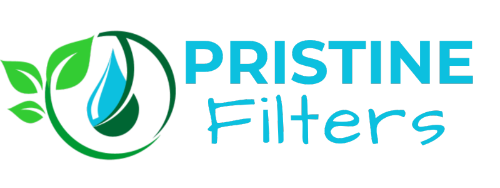There are several methods to produce hydrogen-enriched water, such as electrolyzers, hydrogen sticks, capsules, and magnesium tablets. However, each process results in varying levels of hydrogen. This raises the question: “Do you know how much hydrogen gas is actually in your hydrogen-enriched water?”
Whether your hydrogen water comes from a device, consumable insert, or chemical reaction, it’s clear that there’s more hydrogen in it than in regular purified water. But how much hydrogen exactly? Let’s dive into how hydrogen concentration is measured and how it impacts you.
Understanding Parts Per Million (PPM)
PPM, or parts per million, is a unit used to measure the concentration of one substance dissolved in another. For hydrogen water, PPM indicates how many milligrams (mg) of hydrogen gas are dissolved in one liter (L) of water. Since 1 liter of water weighs about 1 million milligrams, 1 PPM equals 1 mg/L of hydrogen.
How Is PPM Measured?
-
Blue Reagent Testing
This simple at-home test uses a solution (blue reagent) to detect dissolved hydrogen in water. You add the reagent drop by drop to 6 mL of water until the blue color turns clear, which signals the endpoint of the test. To calculate the hydrogen concentration, multiply the number of drops by 0.1. For example, if it takes 8 drops to reach the endpoint, you have 0.8 PPM of hydrogen in your water. However, this test may not work accurately if your water contains copper or chloramine, and it can also be affected by water temperature and pH levels. -
Digital Electronic Meter
These meters measure the water’s oxidation reduction potential (ORP), which helps to estimate the presence of extra hydrogen. While it gives a good indication of whether hydrogen is present, it’s not precise in measuring the exact PPM of hydrogen. Results can also be skewed by the pH level of the water, particularly if it’s alkaline. -
Gas Chromatography (GC)
This lab-based method is the most accurate for measuring hydrogen in water. It separates compounds in the water and precisely measures the hydrogen content. Echo uses third-party testing through H2 Analytics to certify the PPM levels in their products.
Why Does PPM Matter?
Yes, PPM matters because it determines the potential health benefits you may experience from hydrogen-rich water. While the maximum hydrogen concentration achievable under normal conditions is around 1.6 PPM, studies show that even lower concentrations, such as between 0.5 and 1.6 PPM, can offer health benefits like reducing oxidative stress in the body.
What Is the Therapeutic Level of Hydrogen in Water?
The generally accepted therapeutic level of molecular hydrogen in water is 0.5 PPM. Studies suggest that water with hydrogen levels below this may not provide the same benefits. On the other hand, hydrogen concentrations between 1.2 PPM and 1.6+ PPM can yield positive results.
Why Echo’s Hydrogen PPM Is Better
Echo™ hydrogen water machines use advanced technology to produce water with high PPM levels, up to 4.5 PPM, which is significantly above the therapeutic threshold. Echo products use electrolysis to split water molecules into hydrogen and oxygen, with the hydrogen dissolving into the water to provide powerful health benefits like:
- Reduced oxidative stress and inflammation
- Improved gut health
- Enhanced energy
- Better brain function
- Reduced athletic fatigue
- Improved sleep
- Faster recovery
Choose Your Hydrogen PPM with Echo Products
Echo offers various products with different cycle options to help you choose the right PPM of hydrogen for your needs:
- Echo Go Water Bottle (9.5 oz): 0.8 PPM with a 3-minute cycle or 3.0 PPM with a 10-minute cycle
- Echo Go+ Water Bottle (10 oz): 2.5 PPM with a 5-minute cycle or 4.5 PPM with a 10-minute cycle
- Echo Water Pitcher (57 oz): 1.6 PPM with a 20-minute cycle
- Echo Ultimate Hydrogen Water Machine: 1.6 PPM
These options allow you to control the amount of hydrogen in your water based on your personal needs.
Hydrogen’s Half-Life and Storage
Hydrogen-enriched water loses potency over time due to its 3-5 hour half-life, meaning it loses half of its hydrogen content within that period. After 6-8 hours, the water is no longer effective. Proper storage in a sealed container slows this process, while an open container allows hydrogen to escape more quickly.
While the ideal therapeutic level of hydrogen in water is still being debated, we know that 0.5 PPM is the minimum concentration necessary for health benefits. Echo’s reliable technology ensures that their products deliver sufficient PPM levels to improve your body and brain function.






